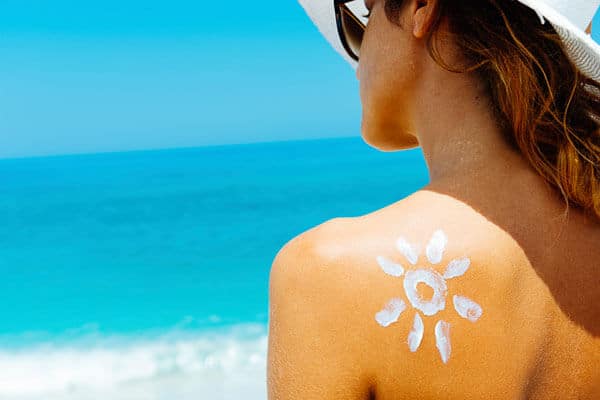Most of us have been indoctrinated to believe that if we wear sunscreen, we are safe from the sun’s damaging rays.
However, melanoma rates are increasing and, according to the Environmental Working Group’s report on sunscreen, there is a consensus among scientists that sunscreen alone will not reverse the growing trend. While sunscreen can protect you, it must be used correctly.
The rates of skin cancer have tripled in the past 35 years, according to the National Cancer Institute. And, what is more alarming is the melanoma death rate has escalated just as sharply. The FDA has recently made the decision to allow the makers of sunscreen to claim their products prevent cancer. However, this is not necessarily the case.
The plain fact is that sunscreen products are not as protective as they claim to be; sunscreens were invented to stop sunburn and are indexed by an SPF rating, which describes the products ability to prevent burning and protect from UV damage.
Marketing of sunscreen products with SPF values of 50 to 100 cause consumers to increasingly and unknowingly select products with less proportional UVA protection. Further, consumers under the assumption that they are protected stay in the sun longer without reapplying sunscreen, or they reapply less often.
So what can you do to protect yourself from the sun? First, it starts with what not to do: don’t use sunscreen as a tool to prolong your time in the sun. Reapply every few hours, or after vigorous activity, sweating or swimming. Do not use a tanning bed or sunbathe, even if you’ve applied sunscreen. There is no such thing as a healthy tan. Make sure to use a sunscreen with strong UVA protection, as well as UV and UVB protection, as this will ensure you get the broad spectrum of protection.
Sometimes fashion can be functional, so cover up! Hats, shirts and sunglasses are the best protection from the sun’s rays. This can be applied particularly to children as early life sunburns are the worst. Keep little ones out of the hot sun and covered up. In cases of babies and infants under 18 months, it is not advised to use sunscreen.
Studies show Vitamin D can also help protect you from the harmful rays of the sun. There is speculation, but not proof, that adequate levels of vitamin D can reduce the risk of melanoma. It is known that vitamin D is good for combating other types of cancer as well. Additionally, it triggers feel-good hormones in the brain.
Finally, one of the most important ways to protect yourself from the development of melanoma is to examine your skin on a regular basis. Check skin for new moles that are tender or growing. Ask your primary care doctor if you should see a dermatologist, and always ask about suspicious marks or moles on your body.
Stay safe in the sun! I f you have any concerns about your skin’s health, please feel free to contact our Oakville clinic to book an appointment with one of our Naturopathic Doctors.


